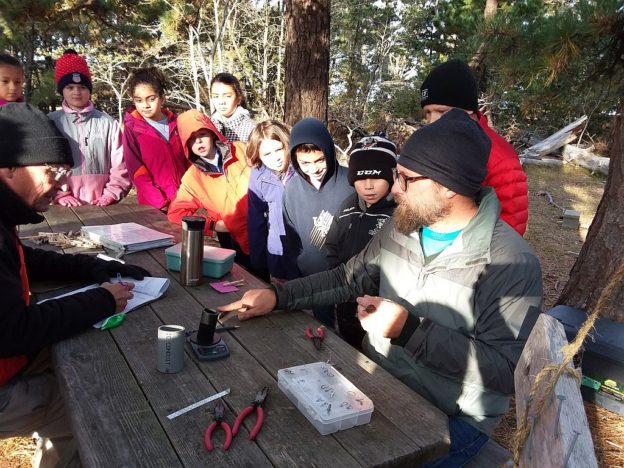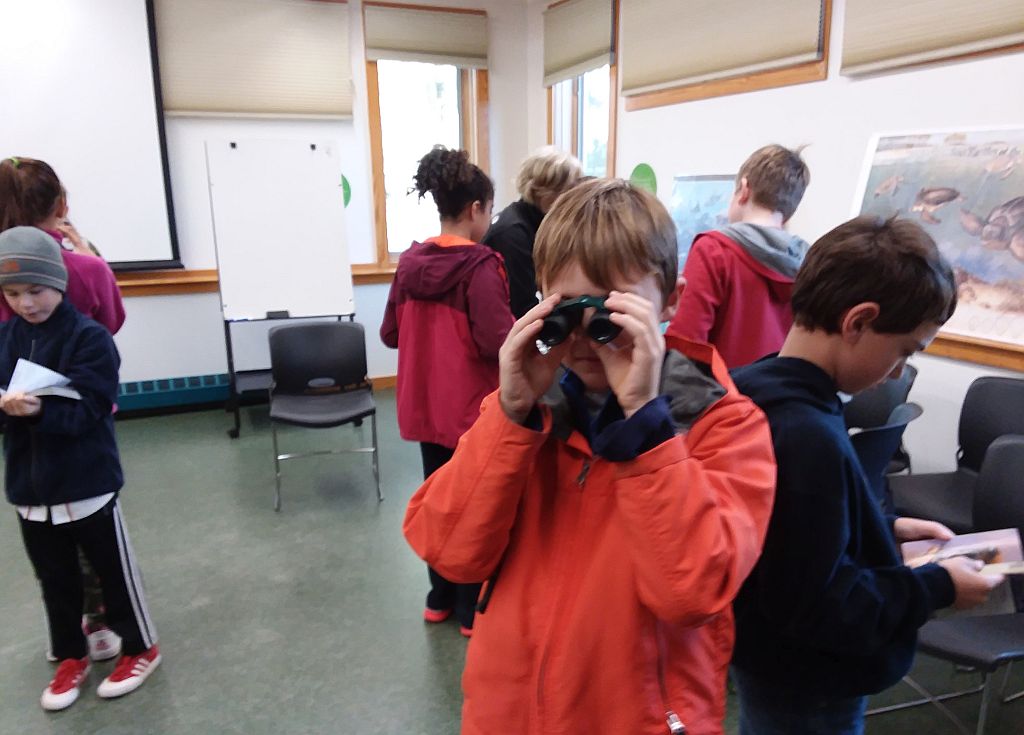
Becoming familiar with the tools of the trade
Fourth graders from the Harwich and Chatham Elementary Schools have been studying birds this fall. But not just for an hour or so or even a day. They’ve been taking part in a year-long curriculum developed by Wellfleet Bay educators which combines a series of in-class lessons with actual field experience and even a chance to watch bird researchers at work.
During an October visit to the sanctuary, the students rotated through several activities, including one about how to identify birds.
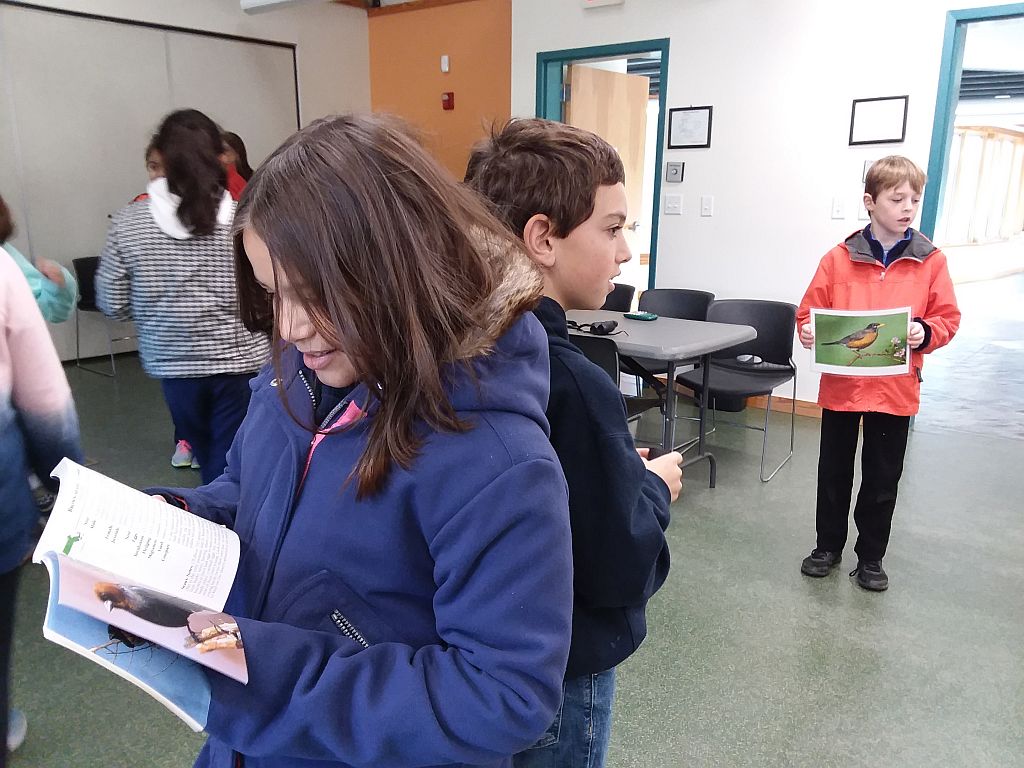
Students learn to observe field marks and to use a basic field guide to identify birds. It’s not easy–one person describing a robin can result in someone else selecting an oriole!
In this activity, one student holds a photo of a bird, another tries to describe its field marks, and a third student, with her back to the student describing the bird, uses a kid-friendly field guide to try to determine the species. It can be tricky!
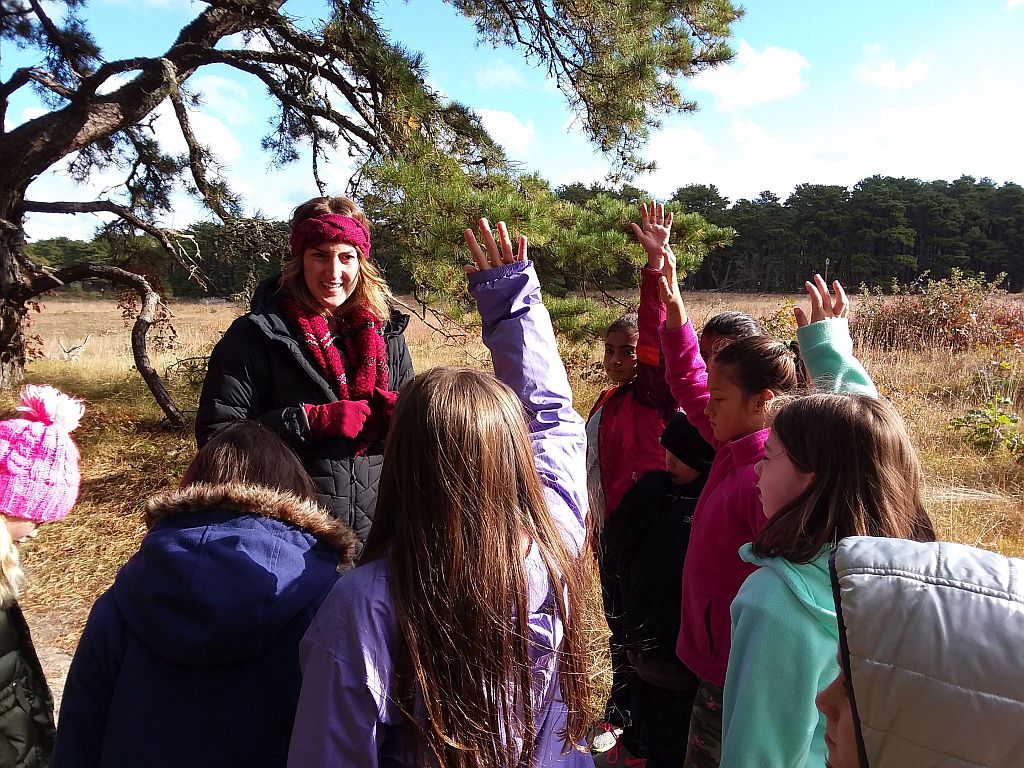
Wellfleet Bay educator Morgan Peck discusses plants that birds use.
The birding curriculum was developed to support state education frameworks for life science, which requires students to understand concepts such as adaptation and ecosystem functions. Having the chance to observe differences in birds’ beaks or to see a bird in the process of making its first (and possibly its last) fall migration makes these abstract ideas more tangible.
Outdoors, students took a walk to identify plants used by birds, such as oaks, pines, and the black cherry tree with its bird-friendly bark:
Finally, there was a chance to see bird researchers in action! The sanctuary’s bird banding station catches birds, measures and weighs them, and checks their physical conditions. A small metal band with a unique number is placed on their ankles so that they can be monitored and studied.
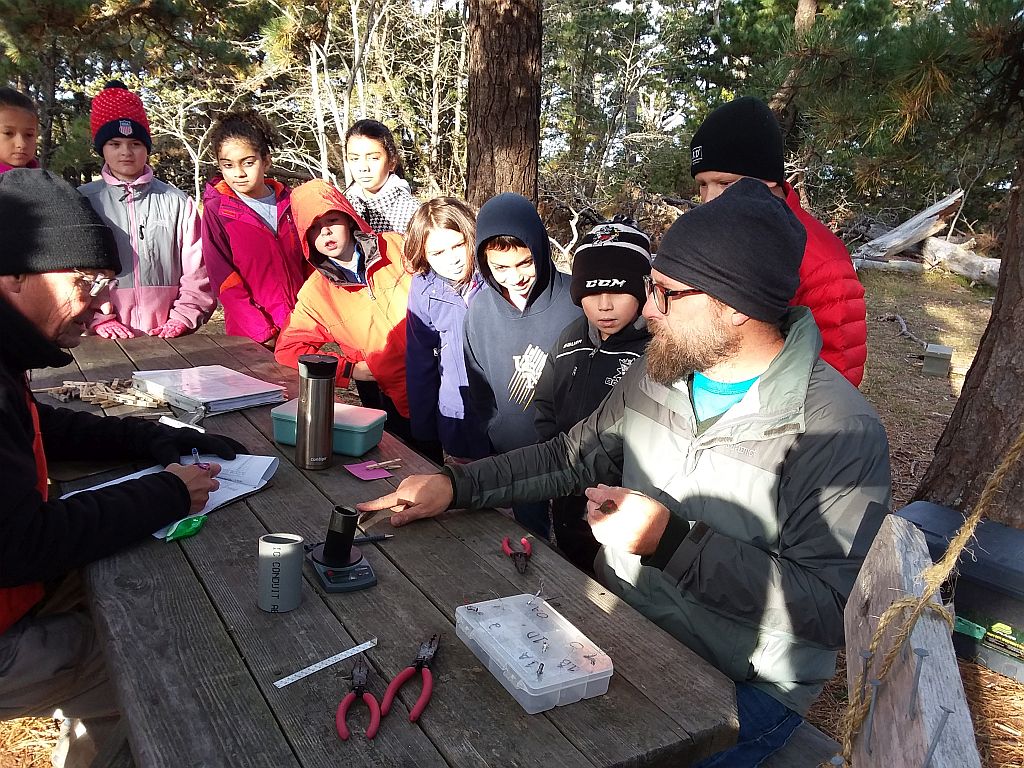
Bird bander and researcher James Junda.
Students learned about the delicate mist nets used to capture songbirds and how the location of the nets (there are 22 in all) helps us to understand how birds are using the sanctuary’s various habitats.
On this particular morning, northern winds had brought in a wave of kinglets, including this Ruby-crowned Kinglet, a bird pretty easy to identify when it displays the red feathers on its head!
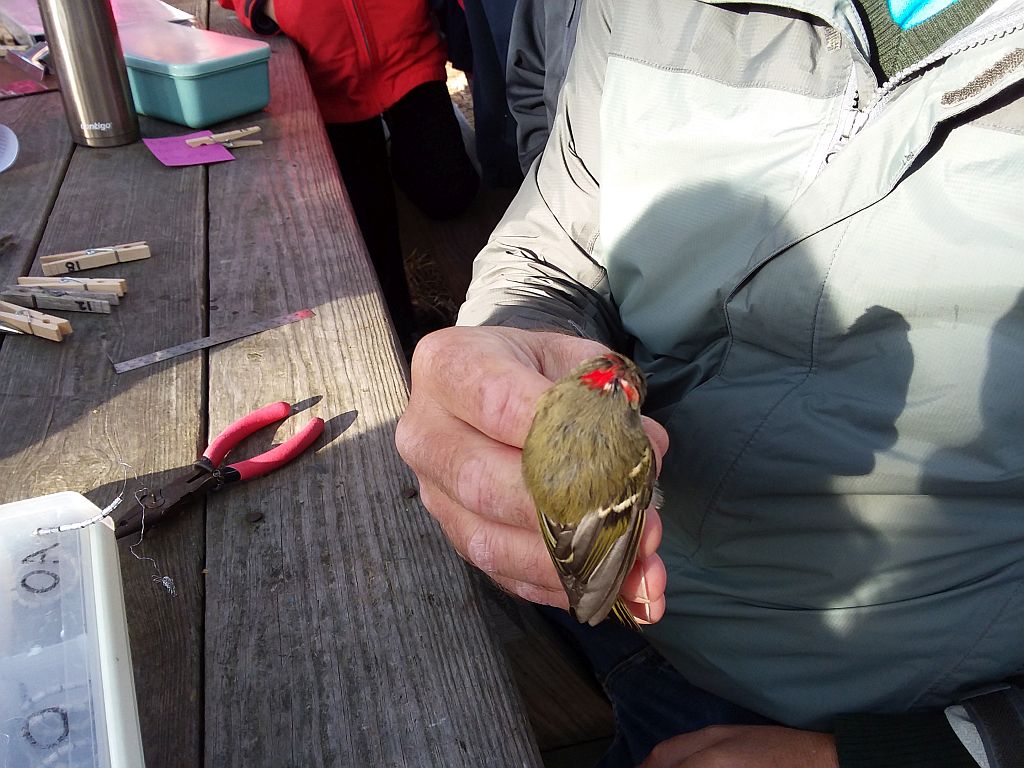
Kinglets usually only show their colorful crown feathers when they’re excited or angry. This bird’s probably a bit of both!
A familiar feeder bird was captured in the mist nets, giving bander James Junda a chance to discuss why songbirds have different leg lengths.
Before ending their day at the sanctuary, the students were invited to touch a banded
White-throated Sparrow before it was released. Banding assistant Valerie Bourdeau showed them how to do it carefully.
Wellfleet Bay school programs coordinator Spring Beckhorn says by focusing on birds, students gain initial insight into how animals function and interact with their habitats.
“Seeing a bird in the hand makes concepts like migration and adaptations for flight come to life for the students, ” she says. “We hope that this experience will be memorable and maybe even pique their curiosity to continue to learn more about wildlife and its relationship with the rest of the natural world.”
Thank You!
Wellfleet Bay would like to thank the individuals, foundations, local businesses, and community organizations whose generous support made our 2018 conservation and education programs possible. Gifts and grants allow us to continue to research and protect the unique ecology and wildlife of Cape Cod and educate children about their local environment with hands-on science programs. Each year, Wellfleet Bay provides classroom lessons and field investigations to nearly 2,100 students on the Outer Cape.
Anonymous (2)
Brewster Conservation Trust
Cape Cod Five Charitable Foundation Trust
Cape Cod Young Professionals
The Chatham Fund of the Cape Cod Foundation
Eversource Energy Foundation
Max and Victoria Dreyfus Foundation
Harwich Conservation Trust
Mary-Louise Eddy and Ruth N. Eddy Foundation
Massachusetts Cultural Council
Massachusetts Environmental Trust
Robert B. Our Co., Inc.
Robert Verity Clem Memorial Scholarship Endowment Fund
Tern Foundation
Tiger Baron Foundation
W. Vernon Whiteley, Inc.
Wellfleet Shellfish Promotion and Tasting―SPAT
Women’s Club of Chatham, Inc.
Wellfleet Bay Leadership Friends and all supporters of the Sanctuary


